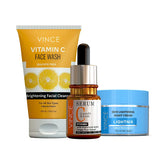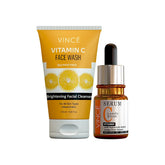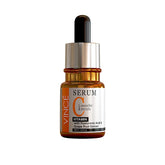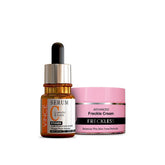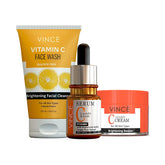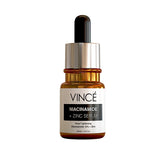Sunburn vs. Sun Poisoning: Symptoms, Remedies & Prevention

We are all fond of a sunny day, warmth on our skin, goodness, and the mood boost that the sunshine naturally gives. There is a dark side, though, to overexposure: sunburn and, in severe cases, even sun poisoning.
Although most people consider them to be the same, there are significant differences between the two conditions. It is significant to know when to treat sunburn and sun poisoning to prevent their occurrence.
The symptoms, tips on remedying them, and things you can avoid will be covered here so that next time you are out in the sun, you will know which side of the fence is greener.
What is Sunburn?
Sunburn is described as damage to the skin as a result of excess exposure to radiation found in the sun or man-made tanning beds. Your skin responds to the extra sun: it forms inflammation, and your skin says, “Enough sun, I feel wounded.”
Symptoms of sunburn
The symptoms of sunburn normally develop in a matter of hours after exposure and worsen within 24–48 hours. Typical symptoms are:
- Red and inflamed
- Heat or warmth emanating from the skin
- Touching pain
- A week later, with some cells being damaged and peeling off the skin a few days afterward
- Mild sunburns take a week to heal, although the resulting damage to the skin may be permanent.
Important Link: Best Sunscreen Tips for Dark Skin in Dubai’s Sunny Climate
What is Sun Poisoning?
It is not poisoning; it is a form of severe sunburn, in that the UV injury is acute enough to result in systemic irritation outside the skin. It may impact the whole body and even require emergency treatment.
Symptoms of sun poisoning
As opposed to mild sunburn, sun poisoning may demonstrate the following symptoms:
- Intense redness, blistering, and swelling
- Severe pain that disrupts one's movement or sleep
- Chill and fever
- Vomiting and nausea
- Fainting or Dizziness as a result of dehydration
- In severe cases, there is a headache and confusion
You are supposed to seek urgent medical assistance in case you develop the above-mentioned symptoms following exposure to the sun.
Differences between Sunburn and Sun Poisoning
Although sunburn and sun poisoning have similar causes (resulting from overexposure to ultraviolet (UV) rays), their effects are differentiated by their degrees as well as the way they act in the body. Sunburn is a severe to moderate skin injury in which UV radiation destroys the superficial tissues of the skin that become tender, red, warm, and may peel off in a few days.
It normally remains on the surface of the skin and heals up after a week when properly taken care of. Sun poisoning, rather, is an extreme form of sunburn that results not only in extreme skin damage (redness, severe swelling, and blistering) but also in the triggering of systemic signs and symptoms, including fever and chills, nausea, headache, dehydration, and dizziness.
Whereas sunburn is painful, sun poisoning may be risky and in most cases, it needs treatment within a very short time to avoid the development of conditions such as infection and serious dehydration.
Important Link: Does Sunscreen Cause Acne? Best SPF Tips for Clear Skin
Reason on a per-factor basis
- Sunburn: Pale, no sunblock
- Sun poisoning: Long-term controls over sun UV, sun at high altitude, snow/water reflection, and some medicines (antibiotics/diuretics)
- Possible Complications
The two may result in:
- skin ageing
- pigmentation changes
- Greater skin cancer
- Sun poisoning also increases the risk of developing infections due to peeling and extensive dehydration.
Self-Treatment of Sunburn
- First Aid on the spot
- Cool Compresses: Put a soap-free piece of cloth on the burned spot and leave it on 1520 min. Do not apply ice to the skin it may result in more harm.
- Cold Showers/Baths: Cool and calm down the heat and alleviate inflammation.
Hydration & Nutrition
UV damages attract fluid to the surface of your skin, leaving you dehydrated. Hydrate yourself (by taking lots of water and drinks with electrolytes in them, such as coconut water);
Over-the-Counter Options
- Aloe Vera Gel: Seeks out natural anti-inflammatory serum and moisturizer
- Ibuprofen or Aspirin: Pain and swelling reduction.
- Moisturizing Creams: Non-lanolin-based varieties that give back to the skin barrier.
Remedies for Sun Poisoning
In case you think you might have sun poisoning, come visit a doctor as soon as possible, particularly when you exhibit signs of blistering, high temperature, and excruciating pain.
Medical Treatments
- Creams are prescribed to ward off infection
- Rehydration IV fluids
- topical or oral antihistamines to swell and itch
At-Home Support (Post-Medical Counsel)
- Maintain a moisturized skin that is clean
- DO NOT pop blisters themselves, as this enhances the risk of an infection
- Get rest and avoid more exposure to the sun
Important Link: Indoor Sunscreen Why You Need SPF Even Inside Your Home
Prevention of Sunburn and Sun Poisoning
Sunscreen Proper Use
- Apply a sunscreen with SPF 30+ of a broad spectrum
- Rub in liberally at least 15 minutes before going outdoors
- Re-apply after swimming/sweating or after 2 hours
- Clothing & Accessories
- Put on UV-protective clothing
- Wear a broad-brimmed hat and sun- sun-protective eyewear
Timing Outdoor Activities
Stay clear of the sun during prime time (10 AM to 4 PM), because it has maximum UV radiation.
Skin Awareness: Examine your skin regularly when in the sunlight-early redness is a call to shelter.
Post-Sun Long-Term Skin Health
Recovery Tips
- After peeling ceases, use mild exfoliation
- Use ceramide or hyaluronic acid skin barrier repair creams
- Skin Checks
- Seek a new mole, colour changes, or irregular shapes
- Make yearly skin checkups with a dermatologist
Best sunscreen for sun poisoning prevention
The best sunscreen is Vince's Sunblock SPF 40. It can protect you from pollution, blue light, and infrared radiation with this gentle formulation of Vince Sunblock SPF 40. The formula contains titanium dioxide and antioxidants that protect the skin from both UVA and UVB rays. It protects your sensitive skin.

This lightweight velvety texture not only protects but soothes and hydrates your skin without leaving any white residue.
Apply a thick layer of Sunblock SPF 40 and massage it gently until complete absorption to get maximum protection
Vince's Sunblock SPF 50 Over time, darkening of the skin occurs, which is very "patchy" and uneven in Asians. It has never been more important to take care of your skin! Vince Sun Screen SPF 50 is the latest scientifically developed moisturizing total sunblock lotion, containing titanium dioxide, which offers maximum protection against UVA & UVB rays.
These two sunscreens are the best for sun prevention they can protect your skin, and you should apply them twice a day

Conclusion
Sunburn and sun poisoning are both caused by prolonged exposure to the sun's UV rays, but they differ in severity. Sunburn is a common condition characterized by red, painful skin, while sun poisoning is a more severe reaction that can cause blisters, fever, and nausea.
Symptoms of sunburn include redness, swelling, and pain, whereas sun poisoning can lead to more severe symptoms like blistering, fever, chills, and dehydration.
Remedies for sunburn include applying cool compresses, moisturizing, and taking pain relievers, while sun poisoning may require medical attention, including topical creams, oral medications, and hydration.
Prevention is key, and can be achieved by seeking shade, wearing protective clothing, and applying broad-spectrum sunscreen with at least SPF 30. By taking these precautions, you can enjoy the sun safely and reduce the risk of sunburn and sun poisoning.
Frequently Asked Questions (FAQs)
Q1: What is the main difference between sunburn and sun poisoning?
Sunburn is localized skin damage from UV rays, while sun poisoning is a severe reaction involving both the skin and systemic symptoms like fever, nausea, and dehydration.
Q2: How long does sun poisoning last?
Sun poisoning, a severe form of sunburn, can last anywhere from a few days up to a week or more, depending on the severity. Mild cases may resolve within 3–5 days, while more severe cases can take 7-10 days to heal. During this time, it's essential to stay hydrated, rest, and avoid further sun exposure to allow your skin to recover. In severe cases, medical attention may be necessary to manage symptoms and prevent complications.
Q3: What are the best home remedies for sunburn relief?
Cool compresses, aloe vera gel, hydration, and over-the-counter anti-inflammatories work best for mild sunburn.
Q4: When should I see a doctor for sunburn or sun poisoning?
If you experience severe sunburn or sun poisoning, it's essential to seek medical attention if you notice symptoms such as blisters covering a large area, fever, chills, nausea, vomiting, or severe pain.
Additionally, if you have a weakened immune system, are elderly, or have a history of skin cancer, it's best to consult a doctor for proper evaluation and treatment. You should also seek medical attention if your sunburn is accompanied by signs of infection, such as increased redness, swelling, or pus.
Q5: Can sunscreen prevent both sunburn and sun poisoning?
Yes, using broad-spectrum SPF 30+ sunscreen correctly can protect against both conditions. By blocking or absorbing UV rays, sunscreens reduce the amount of radiation that penetrates the skin, preventing damage to skin cells. Broad-spectrum sunscreens with an SPF of at least 30 can provide adequate protection against both UVA and UVB rays.

 KSA
KSA
